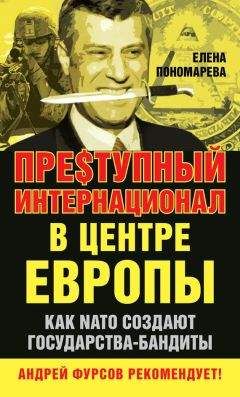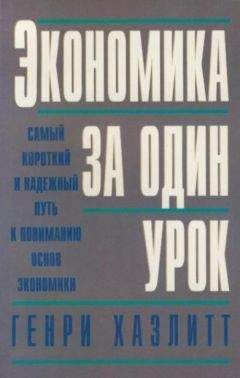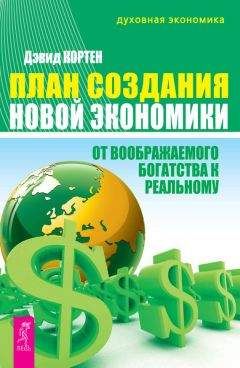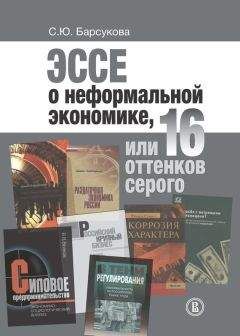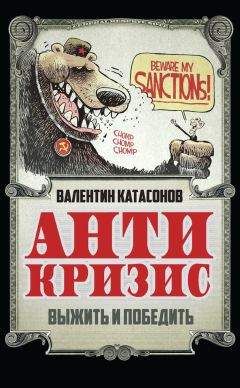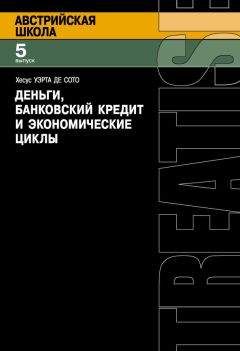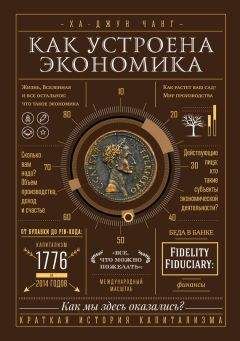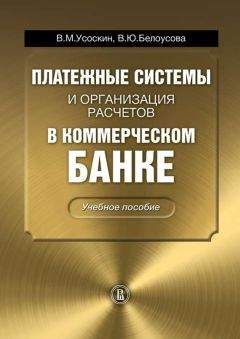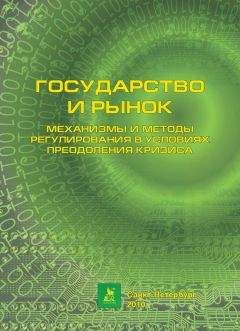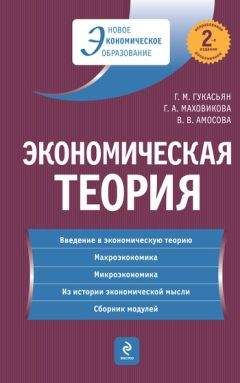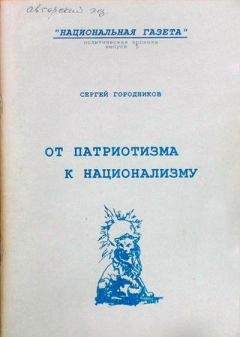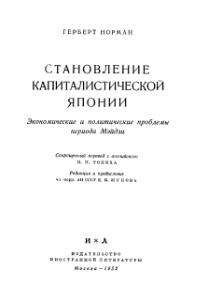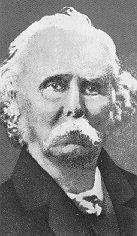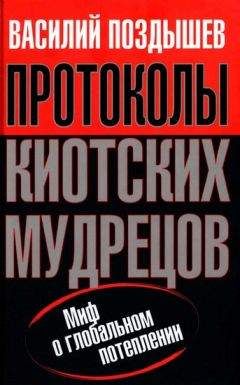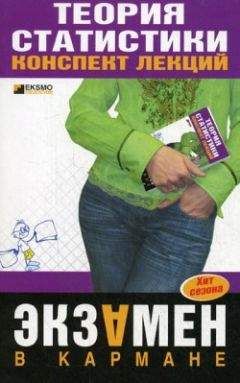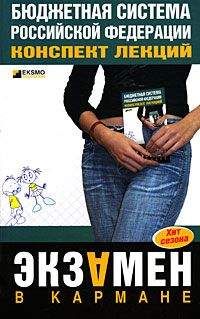Герберт Шиллер - Манипуляторы сознанием

Скачивание начинается... Если скачивание не началось автоматически, пожалуйста нажмите на эту ссылку.
Жалоба
Напишите нам, и мы в срочном порядке примем меры.
Описание книги "Манипуляторы сознанием"
Описание и краткое содержание "Манипуляторы сознанием" читать бесплатно онлайн.
Известный американский ученый профессор Герберт Шиллер на протяжении длительного времени выступает с острой критикой системы американской буржуазной журналистики, ее методов и приемов.
Советскому читателю предлагается ознакомиться с двумя книгами Г. Шиллера — «Манипуляторы сознанием» и «Средства массовой информации и культурное господство»,—объединенными общим названием.
Работы Г. Шиллера помогают лучше понять важнейшие аспекты современной идеологической борьбы.
24 Ibid.
25 William Benton (Chairman, United States delegation to the freedom of information Conference), Address delivered before the Anglo-American press Club, Paris, April 7, 1948, pp. 518—520.
26 "Accomplishments of the United Nations Conference on Freedom of State*; 1948, I (3), June.
27 United Nations documents, E/Conf. 6/79 and E/1050, August 28, 1948.
28 John B. Whitton. The United Nations Conference on Freedom of Information and the movement against international propaganda.— "American journal of international law", 1949, 43 (January), p. 76.
29 "Economist", May 1, 1948, p. 701.
30 Thomas Guback. The international film industry. Bloomington, 1969.
31 Kaarle Nordenstreng and Tapio Varis. Television traffic — a one-way street? — "Report and Paper on Mass Communication'9, № 70, Paris, UNESCO, 1974.
32 Herbert I. Schiller. The Mind Managers. Boston, 1973.
33 Robert D. Leigh. Freedom of communication across national boundaries. — "Educational Record", 1948, 29 (October), p. 382.
34 Ibid.
35 Report of the working group on direct broadcast satellites on the Work of Its fourth session. A/AC, 105/117. New York, June 22, 1973, Annex I, p. 1.
36 UNESCO declaration of guiding principles on the use of satellite broadcasting for the free flow of information, Spread of eduction and Greater cultural exchange. Document A/AC, 105/109, 1972 (mimeographed).
37 Frank Stanton. Will they stop our satellites? — "The New York Times", October 22, 1972.
38 Ibid.
39 Earl L. Vance. Freedom of the press for whom? —- "Virginia Quarterly Review", 1945, 21 (Summer), pp. 340—354.
40 John Scali, U. S. delegate to tne United Nations. Speech before the General Assembly. — "The New York Times", December 7. 1974.
41 "The New York Times", November 23, 1974.
42 "The New York Times", December 12, 1974.
43 Final recomendations of the Helsinki consultations. Helsinki, 1973, p. 15.
44 Conference on security and cooperation in Europe, Verbatum Records, Part I, CSCE/I/PV. 5, Helsinki, July 5, 1973, Sir Alec Douglas Home.
45 Urho Kekkonen. "The free flow of information: towards a re- consideration of national and international flow of television program- mes. University of Tampere, May 21, 1973.
Глава третья1 Kaarle Nordenstreng and Herbert l. Schiller. Helsinki: the new equation. — "Journal of Communication", 1976, 26 (1), pp. 130— 134.
2 Analysis of problems and table of objectives to be used as a basis for medium — term planning (1977—1982). Document 18 c/4. Paris, UNESCO, 1974, p. 28.
3 Leonard H. Marks. International conflict and the free flow of information. — "Control of the direct broadcast satellite: values in conflict". Palo Alto, 1974, p. 66.
4 Ibid., p. 68.
5 Frederick W. Frey. Communications and development. — Ithiel de Sola Pool et al (Eds.) Handbook of communications. Chi- cago, 1973, p. 400.
6 "Statistics on radio and television, 1950—1960n and "Statistical Yearbook, 1962". Paris, UNESCO.
7 Iskandar Alisjahbana. 'Technology and development", paper presented at International Broadcast Institute general meeting. Mexico City, September 1—5, 1974.
8 Nicholas Garnham. "Trojan horses: some socio-political implications of communication technology", paper presented at International Broadcast Institute general meeting. Mexico City, Sept. 1—5,1974.
9 Raymond Williams. Television: technology and cultural form. London, 1974, pp. 13, 19.
10 Dallas Smythe. After bicycles what? 1973 (mimeograhed).
11 N. Garnham, op. cit.
12 Barry Commoner. The closing circle. New York, 1972, pp. 266— 267.
13 Stanton A. Glantz and Norm V. Albers. Department of defence reserch and development in the university. — Science", 1974, 186 (4165), p. 706.
14 Ibid., p. 710.
15 Herbert I. Schiller. Mass communication and American empire. New York, 1969.
16 Joseph N. Pelton. INTELSAT: politics and functionalism. Mt. 1974, p. 158.
17 N. Garnham, op. cit.
18 David Dickson. Alternative technology. Glasgow, 1974.
19 John Lent. "Mass media in the developing world: four conundrums", paper presented before the International Association for Mass Communication Research. Leipzig, September 12—20, 1974, p. 4.
20 Nicholas Wade. Green revolution II. Problems of adapting a western technology. — "Science", 1974, 186 (4170), pp. 1186 — 1192.
21 "The international herald tribune", March 23 — 24, 1974.
22 Tabita M. Powledge. Dangerous research and public obligation. — "The New York Times", August 24, 1974.
23 Leon R. К ass. The new biology: what price relieving man's estate? — "Science", 1971, 174 (4011), pp. 779—788.
24 Ibid., p. 786.
25 Hamid M owl ana. The multinational corporation and the diffusion of technology. — A. A. Said (Ed.). The new sovereigns: multinational corporations as world powers. New Jersey, 1975, p. 83.
26 Kathleen Teltsch. Space plans frustrate the have — nots. — "The New York Times", May 14, 1972, p. 13.
27 Gunnar Adler-Karlsson. The political economy of east — west — south cooperation (unpublished manuscript from Wiener Institut fur Internationale Wirtschaftswergleichs), 1974, p. 57.
28 Frantz Fanon. The wretched of the earth. New York, 1965, pp. 253—255.
29 D. Smythe, op. cit.
30 Iskandar Alisfahbana, op. cit., p. 10.
31 Juan E. Corradi. Cultural dependence and the sociology of Knowlenge: the Latin American case. — "International journal of con- temporary sociology", 1971, 8(1), pp. 48—49.
32 Голосование по этому поводу в ООН и ЮНЕСКО в 1973 и 1974 гг. неизменно приводило к тому, что Соединенные Штаты ока- вывались в почти полной изоляции. В докладе, отражающем американскую позицию, отмечалось* "Настаивая на том, чтобы не было никакого международного соглашения, Соединенные Штаты оказались в изоляции, а в некоторых странах к ним стали относиться даже враждебно. Позиция США по этому поводу не встретила поддержки ни в одной стране, даже из числа тех, которые высоко ценят свободный поток информации и идей" (Paul L. Laskin and Abram Chayes. A brief history of the issues. In: "Control of the direct broadcast satellite: values in conflict", op. cit., op. 3—14).
33 Edwin B. Parker. Technology assessment or institutional changes? — G. Gerbner, L. Gross and W. Melody (Eds.). Communications technology and social policy. New York, 1973, p. 541.
34 "Science", 1975, 188 (4185), p. 213.
Глава четвертая1 Edwin В. Parker. Social implications of computer/telecommunications systems. Draft of paper prepared for session "A" of the conference on computer/telecommunications, committee for scientific and technological policy, organization for economic cooperation and development. Paris, february 4—6, 1975.
2 Government of Finland, office of the council of state, Gune 1972.
3 "The New York Times", January 25, 1975.
4 Report of the meeting of experts on communications policies and planning, July 1972, document COM/MD2/4. Paris, UNESCO, decern ber 1972.
5 Communications policies in Hungary, Ireland, Sweden, Yugoslavia, Federal Republic of Germany. Paris, UNESCO, 1974.
6 International broadcast institute. Considerations for a European communications policy. London, 1973.
7 Robert Wangermee. Television, new broadcasting techniques and cultural development". Memorandum, document CCC/FES (72) 98, Strasbourg, council of Europe, October 9, 1972.
8 "The labor party". — "Tne people and the media". London, 1974.
9 Programme commune de gouvernement de la Parti Communiste Francaise et de la Parti Socialiste (27 juny 1972). Paris, 1972.
10 Communications policy workshop, ICODES (instituto Colombia desararollo social). Bogota, february 23—28, 1975 (mimeographed).
11 Revolution africaine, 1973, № 499, 14—20 September.
12 Ibid.
13 Proposals for a communications policy for Canada. Ottawa, march 1973.
14 Thomas Guback. Cultural identity and film in the European economic community, paper presented at conference "Film in Europe", London, February 21—23, 1974.
15 Kaarle Nordenstreng and Tapio Varis. Television traffic — a one—way street? — "Report and papers on mass communication", 70. Paris, UNESCO, 1974.
16 International economic report of the president, transmitted to congress february 7, 1974. Washington, D. C, 1974, p. 70.
17 Ithiel de Sola Pool. The rise of communications policy research.— "Journal of communication", 1974, 24 (2), pp. 31—42,
18 Raymond Williams. Television: technology and cultural form. London, 1974, p. 19.
19 Social indicators 1973, executive office of the president, office of management and budget. Washington, D. C, 1973, p. 225.
20 F. Kemper*. Democratization and participation in the dutch press, paper presented before the international association for mass communication research. Leipzig, September 12—20, 1974.
21 Meeting of international advisory panel on communication research Paris, UNESCO, October 15—19, 1973. "Communication research policies and planning*' (mimeographed working paper). Paris, UNESCO, October 1973, p. 3.
22 Report of the meeting of experts on communications policies and planning, op. cit.
23 See the discussion on public opinion polls in: Herbert 1. Schiller. The mind Managers. Boston, 1973.
24 Kaarle Nordenstreng. Comprehensive communications policies—an example from Finland. Tampere, 1974 (mimeographed).
25 Ithiel de Sola Pooh op. cit.
26 Ithiel de Sola Pool. Direct broadcast satellites and the integrity of national culture.—In: Control of the direct broadcast satellite: values in conflict. Palo alto, 1974; D. Lerner% F. Frey and W. Schramm in: Handbook of communication. Chicago, 1973.
27 Frantz Fanon. The wretched of the earth. New York, 1965.
28 Amilcar Cabral. Return to the source: selected speeches of Ami) car Cabral. New York, 1973, p. 51.
29 Ibid., p. 47.
30 "Granma". May 2, 1971.
31 Sheila Rowbotham. Hidden from history. New York, 1974.
32 A small step toward changing the language of sex domination is observable in the "Guidelines for equal treatment of the sexes in McGraw-Hill book company publications". New York.
33 T. Powers. Pride and Prejudice. "More", 1975, 5 (1).
34 Rita Cruise O'Brien. Domination and Dependence in Mass Communication: Implications for the Use of Broadcasting in Developing Countries. IDS Discussion Paper № 64. Brighton, October 1974, pp. 8-9.
35 Dallas Smyiht. Mass Communications and Cultural Revolution: The experience of China. In: G. Gerbner, L. Gross and W. Melody (Eds.). Communications technology and social policy. New York, 1973.
36 Meeting of international advisory panel on communication research, december 15—19, 1973. Paris, UNESCO (mimeographed).
37 Report of the meeting of experts on communications policies and planning, op. cit.
38 Paulo Freire. Cultural action for freedom. Harmondsworth, Middlesex, 1972, p. 78.
Послесловие1 "The New York times", december 5, 1975.
2 John C. and Michele R. Pollock. The U. S. Press and Chile ideology and international conflict, October 1972 (mimeographed).
3 Neil P. Hurley. Chilean television: a case study of political communication. — "Journalism Quarterly", 1974, 51 (4), pp. 683— 689, 725.
4 Herbert I. Schiller and Dallas Smythe. Chile: an end to cultural colonialism. — "Society", 1972, 9(5), pp. 35—39,61.
5 Fred Landis. How the CIA Gets good press in Chile. — «Spectrum" (University of Illinois), October 26, 1974.
6 Tapio Varis. International inventory of television programme structure and the flow of TV programmes between nations. Tampere, 1973; Thomas Guback. Film as international business.— "Journal of communication", 1974, 24 (1), pp. 90—101; Oliver Boyd—Barrett. The World — Wide news agencies, paper presented before the inter- national association for mass communication research. Leipzig, September 12 — 20, 1974.
7 "The international Herald Tribune", October 4, 1973.
8 Stuart Hall. External influences of broadcasting: the external—internal dialectic in broadcasting: television's Double Bind. — F. S. Badley (Ed.). Fourth symposium on broadcasting policy. Man- chester, 1972.
9 H. Schiller and D. S my the, op. cit.
10 Tran Van Dinh. Communications and wars of national liberation. — "Journal of communication", 1976.
11 Patricia Fagen. The media in Allende's Chile. — "Journal of communication", 1974, 24 (1), pp. 59—70.,
Примечания
1
Бюро переписи США. Краткий статистический обзор Соединенных Штатов, 1971 г. Вашингтон, 1971, с. 510.
2
Дуглас Ксйтер. Политика общественного ТВ,— «Коламбия Джорнализм Ревью», 1972, июль — август, с. 13.
3
Насколько далеко продвинулся Пентагон в этом направлении, пользуясь полной президентской поддержкой, видно из одного поразительного отчета Внутренней программы действия (ВПД). Согласно этой программе, министерство обороны (МО) организует летние лагеря для детей из бедных семей. «В 1970 г. в программе ВПД были заняты 5 тыс. военных организаций, действовавших во всех 50 штатах. Свыше 75% детей, взятых в летние лагеря, были из малообеспеченных семей, проживающих в различных гетто... В соответствии с данными МО в 1969 г. в летние лагеря из гетто было взято 225 тыс. детей, в 1970 г. — 775 тыс. и в 1971 г.— 2,7 млн. (увеличение, равное 347%)». Авторы отчета приходят к следующему выводу: «ВПД ставит под угрозу само существование различия между военным и гражданским секторами американского общества, так как военные постепенно втайне от общественности присваивают себе функции других исполнительных департаментов...» (Джордж Д. Корей и Ричард А. Кохен. Внутреннее усмирение. — «Трансэкшн-Сосаети», 1972, № 9, с. 17—23).
Подписывайтесь на наши страницы в социальных сетях.
Будьте в курсе последних книжных новинок, комментируйте, обсуждайте. Мы ждём Вас!
Похожие книги на "Манипуляторы сознанием"
Книги похожие на "Манипуляторы сознанием" читать онлайн или скачать бесплатно полные версии.
Мы рекомендуем Вам зарегистрироваться либо войти на сайт под своим именем.
Отзывы о "Герберт Шиллер - Манипуляторы сознанием"
Отзывы читателей о книге "Манипуляторы сознанием", комментарии и мнения людей о произведении.





